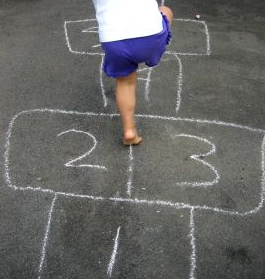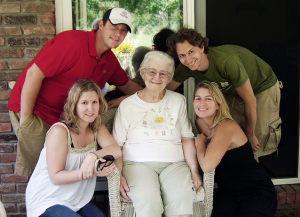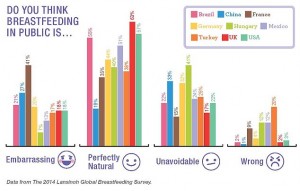
Facebook and Apple now offer an egg-freezing option to attract female employees.
Facebook has recently proposed a new “perk” for female employees to freeze their eggs so they may focus on their career and postpone motherhood until a later date. Facebook is paying $20,000 to cover the oocyte cryopreservation (egg freezing) treatment ($10,000) and yearly storage costs ($500). Technology giant Apple is soon to follow suit.
However, these proposals have sparked a debate concerning the implications of this decision. Is this form of “fertility insurance” necessary, or do women simply need more support from their employers if, and when, they decide to start a family? Read More →

More daylight hours shows an increase in physical activity in children 5-16 years old.
On Sunday 26 October, the clocks went back one hour across Europe, North America, New Zealand, South Australia and some countries in South America, marking the end of Daylight Saving Time (DST). In the UK this date marks the end of what is known as British Summer Time, and thus begins the winter routine of lighter mornings but darker evenings.
The study

Since the crisis began in 2008 the number of children living below the poverty line has increase by 2.6 million.
Since the global recession began in 2008 the number of children living in poverty in affluent countries has risen by 2.6 million, according to a report from UNICEF. In 23 of the 41 countries including in the study, poverty has jumped sharply. In Ireland, Greece, Croatia, Latvia, and Iceland rates rose over 50%.
UNICEF, a branch of the United Nations, says the number of children living below the poverty line in the developed world is now 76.5 million. The report ranks 41 countries from the OECD and EU according to whether child poverty rates have increased or decreased since 2008.

Knowing your family health history can help you predict your breast cancer risk.
October is Breast Cancer Awareness Month, an annual campaign to increase awareness of this disease which affects mainly women. Breast cancer is the most common cancer among women in the developed world, with cancers caused by infections such as the HPV virus being more common in middle- and low-income countries.
Scientific research and better screening methods have greatly improved our knowledge of breast cancer, and survival rates for those affected. If breast cancer is detected early, the five year survival rate is 98% according to the National Cancer Institute. Read More →

Grandma by Rob Boudon (CC BY 2.0)
A health insurer in the UK has launched a ‘multi-family’ product which allows one person to buy insurance for multiple family members. WPA say their Multi-Family Healthcare Plan is designed for grandparents to use their accumulated wealth to buy insurance for their family.
Baby-boomer grandparents currently give €3.5 billion a year to their grandchildren, fund one in four private school children, and are responsible for up to 35% of all childcare for families with working mothers.

Children who eat with their family have a lower risk of teenage obesity. (Image: CC0 1.0)
New research has shown children in families who eat around the same table have less chance of growing up overweight or obese. The study, from the University of Minnesota and Columbia University, suggests a key factor in fighting obesity could be how often a family eats together.
Researchers from the two universities compared data related to sex, age, socioeconomic status, and BMI, from many weight-related studies where the prime focus was teenagers. The studies, comparing the weight of over 2,200 teenagers, found 51 percent were overweight, while 22 percent were classed as obese.

Macedonia is home to the happiest children, with the UK and USA at the bottom end of the rankings.
Last year a survey carried out on children’s well-being, indicated that Dutch children were the happiest in the world. Nevertheless, the 2014 Good Childhood Index crowns Macedonia ahead of the Netherlands as the home of the happiest children in the world this year. Countries not faring so well in the Good Childhood rankings include Turkey and the USA.
The international study used 10 different aspects of children’s lives to calculate which children are the happiest. In total, 50,000 children over the age of nine were asked questions, including how they felt about their appearance, family and school. Factors such as poverty were taken into consideration to see how they also affected well-being.

Kindergarten is fun by woodleywonderworks (flickr) CC BY 2.0
With the new school year well under way for most, many parents will see their first cases of back-to-school colds, flus, and stomach upsets. As kids are coming into close contact with their peers again, their exposure to new viruses and bacteria increases.
These illnesses help strengthen the immune system and build up resistance, it’s perfectly normal to be ill, especially the first few weeks of a new school term (just ask any teacher). However, there are things parents can do to stave off runny noses, and if you child does get ill, the recovery time can be reduced by following some simple advice. Read More →
A recent study has analysed what women really feel about breastfeeding in nine different countries. A contentious issue at times, opinions are divided on every aspect from how long we should breastfeed for, to whether it should be done in public.
The 2014 Lansinoh Global Breastfeeding Survey, conducted by breastfeeding supply company Lansinoh, asked over 13,000 mothers and pregnant women their views on breastfeeding. Expats worried about breastfeeding in public are likely to encounter the least negativity in the UK (63%), USA (57%) , Brazil (55%), and Mexico (51%) where the majority of those questioned see it as “perfectly natural”.

What expat families need to know about health insurance in Dubai.
The health system in the United Arab Emirates (UAE) is constantly changing. With reforms currently taking place it can be hard for expats to know how to navigate the system and access the care they need. We spoke to Brian S. Piper, Head of Global Business Development at Integra Global about healthcare in the UAE.
1. What do the Dubai healthcare reforms mean for expats?
According to new insurance regulations that took effect this year, health care insurance is now mandatory. The law requires that all nationals and residents of Dubai (including dependents) must have coverage in place to pay for emergency and curative health care needs.
